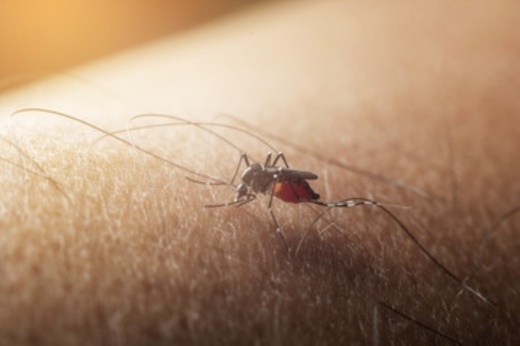Of the 19 patients, 15 were diagnosed with West Nile neuroinvasive disease, a severe case of the virus that attacks the brain, according to the department’s website. Two patients died from the virus.
The specifics
The department reported that 16 of the West Nile virus cases were found in city of Dallas residents, two in Irving residents and one in a Grand Prairie resident. In the Lake Highlands/Lakewood area, two cases were reported in the ZIP codes 75231 and 75243.
So far this year in Lake Highlands and Lakewood, mosquitoes have tested positive for West Nile virus in the ZIP codes 75214, 75238 and 75243. For a full list of Dallas County ZIP codes with mosquitoes that have tested positive, visit the DCHHS website.
Some context
In 2022, DCHHS reported only three human cases of West Nile virus. Spokesperson Christian Grisales said the higher case count this year could be the result of several factors, with the most likely being that more people are spending time outdoors this year without using bug repellent. He added that outdoor activity in Dallas County may have increased this year as pandemic restrictions have worn off.
“As people are returning to the new normal and going back to enjoying outdoor activities, that’s probably the reason why we’re seeing more cases,” Grisales said.
As temperatures drop in North Texas this month, residents can expect to see increased mosquito activity and should ensure they are taking precautions against getting bit, Grisales said.
Quote of note
He added residents should not ignore symptoms if they think they may have contracted the virus.
“We want people to know that if you have a mosquito bite, you should monitor your symptoms, and if you need to seek medical attention, do so immediately,” Grisales said. “It’s not something to ignore.”
What residents should know
West Nile virus is most commonly spread to humans through the bite of infected mosquitoes, which can get the virus by feeding on infected birds. In “a very small number of cases,” the virus can spread through blood transfusions, organ transplants, breastfeeding or during pregnancy from mother to fetus, according to DCHHS’s website.
Only about 1 in 5 people infected with the virus develop symptoms, which can include a fever, a headache, body aches, joint pains, vomiting, diarrhea and/or a rash. Most patients recover completely but can experience fatigue and weakness for months, according to the Centers for Disease Control and Prevention. Symptoms usually develop three to 14 days after a mosquito bite.
Cases of West Nile virus occur during the summer and fall, when mosquitoes are most prevalent, according to the CDC. No preventive vaccine or medication treatment is available. However, rest, fluids and over-the-counter pain medicines can relieve some symptoms.
Going forward
DCHHS officials said residents should follow the four D’s to avoid contracting the virus:
- DEET: When outside, use insect repellents that contain the chemical DEET or other Environmental Protection Agency-approved repellents.
- Dress: Wear long, loose and light-colored clothing when outdoors.
- Drain: Drain or treat all standing water in and around a home or workplace where mosquitoes could lay eggs.
- Dawn and dusk: Limit outdoor time during these times when mosquitoes are most active.





